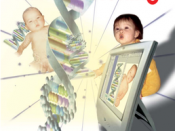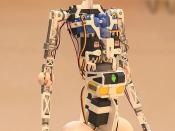A couple that has been trying for years to conceive a child has finally succeeded. But when the baby is born nine months later, it is stillborn. The couple is absolutely heartbroken by their loss, and by the thoughts of the child that could have been. They know that they may not be able to conceive another child. So, the daring thought of using human cloning comes to mind. They could get the exact same child they had before using its DNA. Such is the world that many people hope for, where people can clone copies of lost loved ones and continues living as if they never left.
The science of human cloning is a very controversial topic in the United States, as well as in the rest of the developed world. The biggest reason why cloning is controversial is because in therapeutic cloning, stem cells are harvested from cloned human embryos, which kills those embryos.
Religious groups and "right to life" groups feel that it is wrong to end one life to save another. According to the Family Research Council, a group opposed to all forms of cloning, human reproductive cloning has too many social and ethical concerns, such as how the new clones would perceive themselves in society and in the family. I believe that human cloning will continue to be a hotly debated issue as long as both sides remain adamant about cloning benefits and repercussions.
The science of cloning is not a new practice. In the 1962, a scientist named John Gurdon successfully cloned tadpoles (Plutonium, 1997). Also, according to the Oak Ridge National Laboratory, the term "cloning" is merely an umbrella term for the three main types of cloning. The three types of cloning are DNA cloning, reproductive cloning, and therapeutic cloning. The type...


